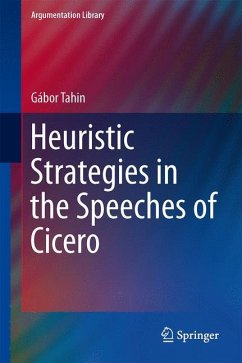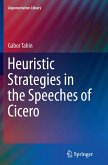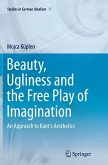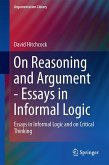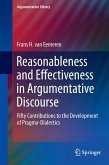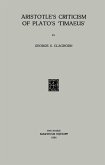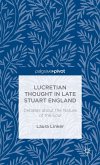This book introduces a new form of argumentative analysis: rhetorical heuremes. The method applies the concepts of heuristic thinking, probability, and contingency in order to develop a better understanding of complex arguments in classical oratory. A new theory is required because Greek and Roman rhetoric cannot provide detailed answers to problems of strategic argumentation in the analysis of speeches. Building on scholarship in Ciceronian oratory, this book moves beyond the extant terminology and employs a concept of heuristic reasoning derived from the psychology of decision making and mathematical problem solving. The author analyses selected passages from Cicero's forensic speeches where arguments of probability are deployed, and shows that the Sophistic concept of probability can link ancient rhetoric and modern theories of argumentation. Six groups of heuremes are identified, each of which represents a form of probabilistic reasoning by which the orator plays upon the perception of the jurors.
Bitte wählen Sie Ihr Anliegen aus.
Rechnungen
Retourenschein anfordern
Bestellstatus
Storno

